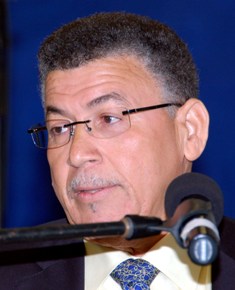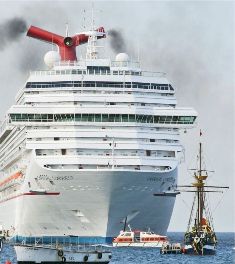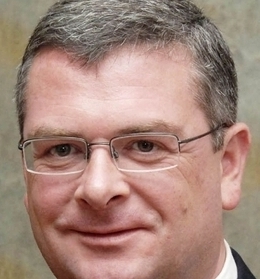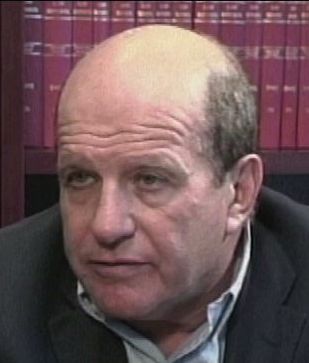Archive for December 8th, 2010

Mac to reveal path to success with stimulus package
 (CNS): The country’s premier says that he will be making a public announcement tomorrow evening revealing how he intends to get Cayman back on the road to economic recovery. A statement from the premier’s press office on Wednesday said that McKeeva Bush will make a national address on Thursday, which will be broadcast courtesy ofRadio Cayman and the television station, Cayman 27. Bush will announce measures aimed at stimulating the economy in line with the promise he made in an earlier national address in September. During that speech the premier told the people he was confident that within 90 days of the TV broadcast Cayman would be back on the road to success.
(CNS): The country’s premier says that he will be making a public announcement tomorrow evening revealing how he intends to get Cayman back on the road to economic recovery. A statement from the premier’s press office on Wednesday said that McKeeva Bush will make a national address on Thursday, which will be broadcast courtesy ofRadio Cayman and the television station, Cayman 27. Bush will announce measures aimed at stimulating the economy in line with the promise he made in an earlier national address in September. During that speech the premier told the people he was confident that within 90 days of the TV broadcast Cayman would be back on the road to success.
The statement from the press office said that after taking input from various sectors the premier will again speak to the country, a week before his own self imposed deadline, to announce the measures that will deliver on that commitment and will return the Cayman Islands to the path that created its success.
"I am confident that within 90 days of today, Cayman will be back on the path which created its success. It will not be complete, no, but we will be moving forward," the premier said on 16 September.
He had spoken about strengthening incentives, changing immigration policies (including a contracted rollover period), assisting small businesses and speeding up the offshore licensing process as part of the solution to the current economic difficulties. He also announced the formation of some more committees to examine the situation. Bush said that government had contracted Jude Scott to oversee the implementation of various projects and initiatives it was considering, and heads of departments across government were being asked to deliver “statistics and information” to the Ministry of Finance to assist in the monitoring of economic activity.
Since then he has hinted at a stimulus package that would assist the offshore sector, he has pointed to possible duty concessions and the reduction of trade and business licenses, as well as work permit fees for small businesses.
The address announcing what measures government has now decided to take will air on Radio Cayman immediately following the 6pm and 10pm newscast on Thursday evening and after the 8am newscast on Friday morning. Cayman 27 will televise the address at 8pm on Thursday evening.
Check CNS on Thursday evening for a report on the announcements. We will also be reporting on any details of the expected stimulus from the floor of the Legislative Assembly, which resumes on Thursday.

Police issue warning over date rape drugs
 (CNS): Following unconfirmed reports regarding the possibility that drinks may have been spiked at social gatherings and bars on Grand Cayman the RCIPS is issuing a warning for the public to be extra vigilant over the holiday season. Police said that while there is no medical or other direct evidence of the date rape drug ‘Rohypnol’ being used in any specific incident there have been a number of reports to the police from people who believe that their drinks have been spiked. The police advised that everyone should exercise awareness and remain alert in order to avoid becoming a victim of a crime over the Christmas and New Year celebrations.
(CNS): Following unconfirmed reports regarding the possibility that drinks may have been spiked at social gatherings and bars on Grand Cayman the RCIPS is issuing a warning for the public to be extra vigilant over the holiday season. Police said that while there is no medical or other direct evidence of the date rape drug ‘Rohypnol’ being used in any specific incident there have been a number of reports to the police from people who believe that their drinks have been spiked. The police advised that everyone should exercise awareness and remain alert in order to avoid becoming a victim of a crime over the Christmas and New Year celebrations.
Although ‘Rohypnol’ has never been seized or seen by police in Cayman the ‘date rape drug’, is said to produce memory loss and decreases a person’s resistance, when combined with alcohol. When placed in a drink, the drug Rohypnol dissolves quickly and takes effect within minutes, causing victims to lose consciousness and memory for hours. Other common symptoms are dizziness, confusion, decreased blood pressure and urine retention.
If a person is rendered disoriented, this could lead to sexual assaults especially against women, but the drug is not gender biased. Detective Superintendent Marlon Bodden of the Specialist Support Operation of the RCIPS advised people to be wary about accepting drinks from anyone you don’t know well or long enough to trust. “If you are accepting a drink, make sure it’s from an unopened container and that you open it yourself,” he said. “Don’t put your drink down and leave it unattended, even to go to the restroom and asked people to notify others about the effects of dangerous drugs.”
Anyone who thinks they have been a victim should notify the authorities and seek professional medical help immediately.
“To date there has not been any medical evidence to support various suspicions, neither has there been any seizure of drug as described in the Caymans,” Bodden said but he encouraged anyone with information regarding such suspicions to notify the RCIPS immediately.

Everyone’s back yard
There has been a considerable amount of comment on CNS recently suggesting that those who are against the East End Seaport are only opposing it because they don’t want it in their backyard. However, this project will essentially affect everyone’s yard in Grand Cayman — front and back.
The opposition to this proposed development is about a lot more that not wanting an unpleasant looking industrial construction project in their district.
The opposition to this piece of environmental terrorism is about the preservation of a way life, about choosing environment over development at any cost, and about thinking of new ways to approach our economic woes. It is about people saying that pouring concrete on everything is not going to solve the country’s fiscal shortcomings and that we need to re-think the endless march to development as a way to get rich.
As has been articulated by both Ezzard Miller and Arden McLean, this project is not as a result of carefully thought out assessment and the future needs of the country’s people but about a wealthy man’s desire for more money and a political leader’s desire for something that looks like action.
With the premier desperate for a tangible project to break ground so he can take credit for any short term economic gains to the public purse and the developer desperate to get hishands on the fill, the red-herring of the need for a cargo facility in East End suits them both well.
Aside from being an environmental catastrophe in itself by putting at risk the local water lens, destroying reefs, threatening the critical habitat in the area and undermining the aesthetics of one of the islands’ most dramatic stretches of open, undeveloped coastline, the project also offers some real dangers and knock-on environmental hazards.
Many local mariners have warned about the potential dangers during rough weather, not just major hurricanes, and the revelations that the developer is considering laying an oil pipeline through the middle of the island to carry the fuel stored in the new containers he proposes to put there is horrifying, not just to those who have a serious commitment to environmental conservation but to anybody with common sense.
Moving oil around, be it in pipes, on ships or in road tankers, is an inherently dangerous thing to do and if we insist on continuing to burn this fossil fuel, not just in our cars but to generate our power as well, than we will need to move it around. Given those dangers, it is best to limit the movement as much as possible in order to reduce the risk of hazardous accidents and leaks.
At present the fuel is carried a relatively short distance from South Sound to the industrial area and to local gas stations, but if Joseph Imparato builds his commercial seaport, the oil he wants to store there will have to come back to the capital somehow. It will either be via pipeline and all the dangers and environmental repercussions associated with it, or it will be pumped into tankers to be moved across the island day after day on the roads.
If this port proposal ever comes to fruition there will be major changes to the island that will affect everyone in Grand Cayman. In the first instance there will be the need for major road upgrades, which will not only cost the public purse millions of dollars but will cost the environment unquantifiable expense.
The need to move cargo back to the country’s capital, cruise passengers to and from the airport and mega yacht owners to their private hangers will increase the traffic in the islands’ once peaceful areas, challenging any efforts by the Department of Environment to preserve what remains of the country’s dwindling natural resources.
Development cannot be allowed to continue at any cost and the people who oppose this project are much more than ‘NIMBYs’, a loathsome term used to describe those who oppose development for purely selfish reasons. If the people of East End and North Side were being truly selfish they would probably support the project as they are suffering significantly from the country’s economic decline and the associated unemployment. After all, Imparato is promising them all jobs working in his quarry, blasting the rock to send overseas.
The opposition to this project comes from different people for different reasons but the desire not to destroy and take risks with nature is the common thread – not to mention the rather unattractive thought of physical chunks of a people’s country being simply dug up and sold overseas.
The anti-seaport movement needs everyone who has ever taken a stand against a development project because of the risks to the environment to join them in opposing this proposed ravaging of the last remaining areas of natural landscape.
Those who asked for support for their opposition to the Emerald Sound development, those who fought for the Ironwood forest and those who have pushed against the North Sound channel also need to get behind the people of East End and join forces to say no to this development and to send a clear message to government that the people care for more than a rich man’s empty promise of trickle down.

2nd choice gets chance at port
 (CNS): Despite comments from the chairman of the Port Authority just over a week ago that DECCO (aka Dart) was still at the cruise port project negotiating table, government has now confirmed it has been talking to the second choice developer. An official government statement on Wednesday revealed the Dart deal was over and it had moved to a new deal with GLF Group/Royal Construction to build the George Town cruise piers. Government admitted that a mutually acceptable deal couldn’t be reached with DECCO but said the developer had agreed to make the existing “completed work package” likely to include the Environmental Impact assessment, which has not yet been made public, available to the Port Authority.
(CNS): Despite comments from the chairman of the Port Authority just over a week ago that DECCO (aka Dart) was still at the cruise port project negotiating table, government has now confirmed it has been talking to the second choice developer. An official government statement on Wednesday revealed the Dart deal was over and it had moved to a new deal with GLF Group/Royal Construction to build the George Town cruise piers. Government admitted that a mutually acceptable deal couldn’t be reached with DECCO but said the developer had agreed to make the existing “completed work package” likely to include the Environmental Impact assessment, which has not yet been made public, available to the Port Authority.
“This will allow the Port Authority to progress with the project without losing time to replicate this effort; and the government and the Port Authority acknowledged it graciously,” government officials said in the official release.
Government said it had already moved toward a Framework Agreement with GLF Group/ Royal Construction but none of “time spent negotiating with DECCO has been wasted” as the project could still be started and completed in the same time frame as originally proposed, official claimed.
GLF/Royal Construction have apparently committed to the same terms and conditions as thosenegotiated with DECCO but the new firm has agreed to a maximum lease period of thirty years for the residual upland.
“It is our intention to complete the main agreement within sixty to ninety days, which will allow us to start the project in the first quarter of 2011,” officials said. “It has always been the government’s stated commitment to get this project at a cost that is affordable and acceptable to the people of the Cayman Islands and by reaching an agreement with GLF/ Royal Construction, who were the second place bidder, we are well on our way to accomplishing that.”
Stefan Baraud, chairman of the Port Authority, who told CNS eight days ago that Dart were still in the game, said the port remained committed to realising an improved experience for our cruise ship visitors and this includes the berthing facility. “DECCO’s commitment to the country and willingness to make completed work available to us as we go forward will go a long way to making this much needed infrastructure improvement a reality sooner, rather than later,” he said in the official statement.
There were no details revealed about the financing of the project, which had been one of the key reasons why government had originally expressed a preference for Dart as it was one of the few bidders that would be able to self finance the project.
CNS contacted Dart for comments on the collapse of the negotiations and how much they had invested in the preliminary works, but the company said it had nothing further to add to what had been said in the official statement by the company’s CEO Cameron Graham. "DECCO is committed to helping the country realize cruise berthing facilities and will work with the Port Authority and government to assist.”
Government said it had a high level of mutual respect for the DECCO team but it, the Port Authority and the developer had agreed that it was the best option under the current circumstances to conclude the negotiations.
"The Cayman Islands government is committed to cruise tourism, and although we are disappointed that we could not reach mutually agreeable terms with DECCO, we sincerely appreciate the efforts and investment DECCO has extended towards the national goal of improving cruise berthing facilities," said Cline Glidden, MLA and the project lead on the cruise berthing project. “It is has always been the government’s main goal to ensure that the agreement with the port developer would be in the best interest of the Caymanian people.”
GLF is an international marine construction company that is entering into a joint venture with Royal Construction, a local firm which reportedly worked on the new George Town Library building.

Rundown returns with alternative view of economy
 (CNS): Cayman’s most popular stage production, Rundown, will be back for a limited run at the Harquail Theatre at the end of March next year, organisers said on Wednesday. Hoping to “Upturn the economic downturn”, the cast, featuring old and new players, will be taking an irreverent look at life in the Cayman Islands, says CNCF’s Artistic Director, Henry Muttoo. Auditions for the show, especially for those who do impressions, will be held this Saturday, 11 December, at the Harquail Theatre. Meanwhile, the National Cultural Foundation is also looking for new young talent with auditions for the Young at Arts programme and auditions will also be held Saturday.
(CNS): Cayman’s most popular stage production, Rundown, will be back for a limited run at the Harquail Theatre at the end of March next year, organisers said on Wednesday. Hoping to “Upturn the economic downturn”, the cast, featuring old and new players, will be taking an irreverent look at life in the Cayman Islands, says CNCF’s Artistic Director, Henry Muttoo. Auditions for the show, especially for those who do impressions, will be held this Saturday, 11 December, at the Harquail Theatre. Meanwhile, the National Cultural Foundation is also looking for new young talent with auditions for the Young at Arts programme and auditions will also be held Saturday.
CNCF said that auditions for Rundown will be held between 12.30pm and 2:00pm and for the Young at Arts programme between 10:00am and noon for young people aged between 11 and 17.
Young at Art audition hopefuls need to book an audition time by calling 949-5477. Applicants should bring a memorised monologue in the form of a speech or poem, a dance, song or music that will be played on an instrument. Pieces should run no longer than three minutes. Participants should wear loose-fitting, comfortable clothing and come prepared to do movement and some reading aloud.
Young At Arts is an educational youthprogramme produced by CNCF and its prime objective is to train young, creative minds in the practical disciplines of the performing arts. For more information, call Rita on 949-5477 or email cayfest@candw.ky
For more information on Rundown auditions call: 949-5477 or email cncf@candw.ky

Digicel completes $300m bond sale
 (CNS): Digicel Limited has completed a US$300 million corporate bond offering according to a release on Wednesday. The transaction was a reopening of the 8.25% senior notes due 2017 first issued in December 2009. The bonds were priced at 102.75 to yield 7.54%. Digicel Limited which provides services in 24 markets in the Caribbean and Central America had 7.8 million subscribers at September 30, 2010. DL also holds a 44% stake in Digicel Holdings (Central America) Limited which has 1.4 million subscribers in its operations in Honduras and Panama. The use of proceeds of this offering will be for general corporate purposes, including capital expenditure and debt service.
(CNS): Digicel Limited has completed a US$300 million corporate bond offering according to a release on Wednesday. The transaction was a reopening of the 8.25% senior notes due 2017 first issued in December 2009. The bonds were priced at 102.75 to yield 7.54%. Digicel Limited which provides services in 24 markets in the Caribbean and Central America had 7.8 million subscribers at September 30, 2010. DL also holds a 44% stake in Digicel Holdings (Central America) Limited which has 1.4 million subscribers in its operations in Honduras and Panama. The use of proceeds of this offering will be for general corporate purposes, including capital expenditure and debt service.
Colm Delves, Digicel Group Chief Executive, said: "The funds raised will in part support the planned expansion of our business in Haiti which delivered strong year on year revenue growth for the six months ended September 30, 2010."
He added that he was very pleased with the positive response to the transaction, which was more than two times over-subscribed with participation from over 75 well-established high yield and emerging market accounts.
Credit Suisse, Citi, J.P. Morgan, Deutsche Bank, Barclays Capital and Davy acted as initial purchasers on the bond offering.

Barbados follows Cayman and cancels jazz fest
 (CNS): The Cayman Islands is not the only country in the region that has cancelled is annual jazz fest as a result of economic pressures. The Barbados annual festival which has been held there since 1993 will not be held in January 2011 according to a release by the organisers GMR International Tours. Although the company said it had fought to keep the festival going because of its importance to the local economy it was simply not in a position to keep it going this year. The Cayman Jazz Fest was also abandoned this year after revelations in a civil service report that it was not presenting value for money.
(CNS): The Cayman Islands is not the only country in the region that has cancelled is annual jazz fest as a result of economic pressures. The Barbados annual festival which has been held there since 1993 will not be held in January 2011 according to a release by the organisers GMR International Tours. Although the company said it had fought to keep the festival going because of its importance to the local economy it was simply not in a position to keep it going this year. The Cayman Jazz Fest was also abandoned this year after revelations in a civil service report that it was not presenting value for money.
Although the Barbados festival was run by a private organization and not the public sector organizers said they had struggled for a long time to keep it going. The producers said they have not totally abandoned the concept of the festival and hope that in the coming months they may be able to sow the seeds of its return which is said to be the premier jazz festivals in the region.
In the civil service review of the department of tourism, the team conducting the assessment indicated that the Cayman jazz fest would be better in the hands of the private sector. Signalling the death knell for the Jazz Fest, the review team said it was concerned that the return on investment of managing the event was not clearly established or well monitored.
“The net cost of (the jazz fest) was $1million in 2009. It was not clear what contribution the Jazz Festival made to tourist visitation figures. Also, some industry stakeholders questioned the timing of the Jazz Festival and believed that the timing is not in the best interest of the economy,” the reviewers said of the festival.

Travers attacks ‘Tax Taliban’
 (CNS): Following his letter to a UK Labour member of parliament Emma Reynolds regarding her comments about tax avoidance and the Cayman Islands, Anthony Travers has taken aim again at Reynolds, as well as the American president and the socialist movement, which he has described as the "tax Taliban". During his speech delivered at the IMAC Cayman Captive Forum to an audience of over 1,000 international as well as local financial experts, the chair of Cayman Finance said the negativity about offshore financial centres was driven by “blame deflecting” politicians and “disturbed individuals” who believed that one high global rate of taxation would solve global poverty.
(CNS): Following his letter to a UK Labour member of parliament Emma Reynolds regarding her comments about tax avoidance and the Cayman Islands, Anthony Travers has taken aim again at Reynolds, as well as the American president and the socialist movement, which he has described as the "tax Taliban". During his speech delivered at the IMAC Cayman Captive Forum to an audience of over 1,000 international as well as local financial experts, the chair of Cayman Finance said the negativity about offshore financial centres was driven by “blame deflecting” politicians and “disturbed individuals” who believed that one high global rate of taxation would solve global poverty.
Travers accused Reynolds, the shadow cabinet Labour MP, of appearing not to be able to tell the difference between tax evasion and tax avoidance when she said that tax evasion and tax avoidance were unacceptable as she asked the new UK government why it had given up demands to introduce direct taxation in the Cayman Islands over its borrowing approval.
The Cayman Finance chair questioned why she would raise tax evasion as it is not permitted or enabled by Cayman legislation and suggested she did so to demonise the jurisdiction.
“Tax avoidance is lawful and if Ms Reynolds finds it unacceptable she must amend UK law, which of course she can’t because her party is in the minority, although they had 13 years in power and apparently forgot to get round to it,” he told the audience, echoing the correspondence he recently sent to Reynolds.
Travers said he believed the widespread negativity was part of well organised and powerful public relations campaigns driven by onshore Treasury, and supranational and domestic regulatory bodies. British politicians such as Emma Reynolds and former Prime Minister Gordon Brown and even US President Barack Obama were, he said, examples of politicians that were “blame deflecting … and anxious to obfuscate the failures of their domestic regulatory systems … by suggesting that in some way it is the tax or regulatory system of the offshore financial centre that is at fault.”
He claimed the problems they were trying to conceal by their demonisation of offshore centres had their source onshore. He described various socialist activist movements, such as the trade unions, major charities such as Oxfam, and Travers arch nemesis, Richard Murphy of the Tax Justice Network as the “Tax Taliban” .
The effectiveness of these movements were however diminishing Travers claimed as he told his audience their claims “are a heresy and are unlikely to withstand the tax transparency” that he said Cayman demonstrated.
Travers said the tsunami of negativity boiled down to competition. Tracking the start of it back to the 1998 OECD report on ‘Harmful Tax Competition’. This report, he suggested created “an Alice in Wonderland world” in which all countries should be taxed at an agreed super rate of tax.
“These negative public relations campaigns are really all about who controls global financial services and capital flows and the right to tax those capital flows,” he said. “Jurisdictions which provide tax competition are seen as a threat by the high tax jurisdictions.”
Travers concluded that the sector was in a trade war for financial services and as a result Cayman had to take the range of financial services qualitatively to a much higher standard and establish an improved substantial presence to deflect the future attacks that are already formulating.
Proceeds of crime law put to the test
(CNS): A number of local experts have reveled that the Proceeds of Crime Law 2008 has proved up to the job during its first year in action. The increase in suspicious activity reports (SARs) has climbed to 358 cases from 320 the year before, according to the recently released Financial Reporting Authority’s 2009/2010 annual report. While this seems a very small figure for a jurisdiction dubbed the fifth biggest financial centre in the world, Martin Livingstone, Partner with Maples and Calder and President of the Cayman Islands Compliance Association, said the numbers reflect the type of business carried out here.
Go to CNS Business page to read this full story, other business news and to comment.
Proceeds law put to the test
(CNS): With the Proceeds of Crime Law 2008 taking effect for its first full year, the number of suspicious activity reports (SARs) has climbed steadily to 358 cases from 320 the year before, according to the recently released Financial Reporting Authority’s 2009/2010 annual report. Even so, this figure still seems to be miniscule for a country dubbed the fifth biggest financial centre in the world. Martin Livingstone, Partner with Maples and Calder and President of the Cayman Islands Compliance Association said that it is important to properly understand the type of business carried out in the Cayman Islands.
“There are two key reasons for this. In terms of banking, over 85% of the funds on deposit in Cayman are intra-bank placements, that means funds transferred to the Cayman branch or subsidiary by other bank group members. Such funds will have already been vetted for anti-money laundering purposes before coming to Cayman,” he said.
Other types of financial entities, such as investment funds and insurance vehicles, are mainly institutional and referred business, so investments have been sourced from or through other entities, most of which are themselves regulated in approved jurisdictions or listed on recognised stock exchanges.
Livingstone said that, again, such investments are by their nature lower in risk (and less prone to suspicion), as the funding has already been vetted before being invested.
Even though the number of SARs have been climbing steadily overall, the number of cases which have required no further immediate action have increased disproportionately (37% in 2008 – 2009, versus 52% in 2009 – 2010). The PCL now makes it an offence if someone is found negligent in reporting a crime, which could indicate the increased eagerness in reporting any suspicion.
Anthony Travers, Chairman of Cayman Finance, said that the making of a suspicious activity report should not be construed as an indication of money laundering or criminal activity. “It may simply mean that the reporter is unable to undertake the necessary due diligence. In some circumstances it may be impossible to do so to the standard required by the law,” he commented.
Livingstone did agree, however, that this increase could have something to do with the fact that an objective test for reporting suspicion has been introduced. He added: “It also could be because the elements of the conduct suggest to the reporter that some form of crime may have occurred (e.g. fraud), but the law enforcement agencies have not come to the same view. It may also relate to repeat reports on the same activity; e.g. Nigerian e-mail scams.”
One area in particular that has seen a considerable increase is the number of SARs filed by money transmitters, which has tripled from the 2008/2009 figure of 8 to 24 for 2009/2010. Livingstone thinks this is an important indicator that the PCL is effectively doing its job.
He stated: “I would view the increase in money transmitter reports as an indication that the law works. It should be remembered that the Proceeds of Crime Law is the main cog in our AML regime to prevent and detect money laundering, not to prevent and detect the predicate or underlying crime; e.g. the theft or drug dealing. There are other specific laws, including the Penal Code to combat that. This data tells me that money transmitters are now more conscious of their obligations under the AML regime.”
Former Cayman Islands Monetary Authority Chairman, Tim Ridley felt that the new PCL is achieving its purpose: “I think the reporting regime is necessary in order for Cayman to meet international standards and commitments. It pretty well follows the UK system so it is here to stay,” he said.
Livingstone agreed, and said: “Cayman has adopted the international standard for reporting obligations under our Proceeds of Crime Law. The law now forces us to think carefully about our actions, learn more about our clients and their business and work to protect the reputation of our own businesses and the Cayman Islands as a leading financial services jurisdiction.”